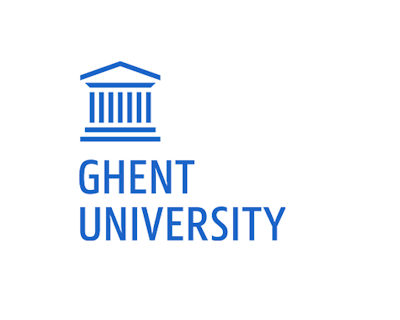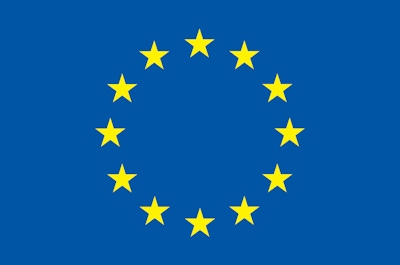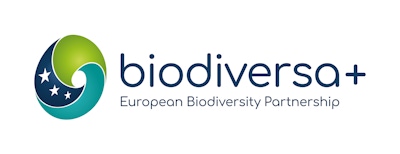news
TRANSNATURE: Unveiling the Dynamics of Transboundary Biodiversity Governance in Europe to Enhance Biodiversity Protection
Humans and nature are highly interdependent: ecosystems sustain human life by providing fundamental services, such as food, water, medicines, a habitable environment, and others. People, on the other hand, are agents of both conservation and habitat destruction.
Federica Cittadino
Senior Researcher at the Institute for Comparative Federalism at Eurac Research
 © Eurac Research | Annelie Bortolotti
© Eurac Research | Annelie BortolottiTRANSNATURE team
The presence of humans on Earth has shaped conservation and, in some cases, made the use of natural resources and their protection mutually beneficial. At the same time, humans are responsible for the main environmental crises that threaten the very possibility of life on Earth, climate change and biodiversity loss. These crises are interdependent not only because human activities have caused them, but also because they are mutually amplifying each other.
Although less publicly discussed, the biodiversity crisis is no less alarming than the climate one. As some scientists claim, we are now facing the sixth mass extinction. This means that species and habitats are declining at unprecedented rates and current measures are failing to revert this trend.
TRANSNATURE stems from the need to deal with this reality. In the face of this unavoidable crisis, the project posits and wishes to verify a new set of claims: humanity needs to find innovative governance mechanisms to face these unprecedented challenges; one of such innovative approaches is transboundary biodiversity protection.
The governance of biodiversity represents a domain of research and policy-making that is crucial for addressing the causes of biodiversity loss. The mere designation of national protected areas has proven not sufficient to ensure conservation and failed to stop biodiversity loss and degradation, inter alia because it does not adequately guarantee ecological connectivity and societal inclusion. Transboundary governance models for biodiversity conservation appear as alternative forms of conservation that respond to the needs of ensuring both a more effective management of biodiversity and the inclusion of different governmental and non-governmental actors and authorities. In this sense, TRANSNATURE goes beyond traditional approaches, exploring how different managing authorities and stakeholders at different policy levels may collaborate to orchestrate effective governance mechanisms for enhanced conservation.
The objectives of TRANSNATURE include:
Enhancing Conservation through Effective Governance:
Investigating how transboundary conservation areas involve different managing authorities (World Heritage sites, European Groupings of Territorial Cooperation (EGTCs), Natura 2000 areas, transboundary institutions, national regulatory authorities, subnational authorities, national and regional parks) and stakeholders (indigenous peoples, local communities, economic groups, environmental NGOS, and citizens) in governance mechanisms to enhance conservation.
Examining Governance Mechanisms in Natural Areas:
Studying how the stratification of different governance mechanisms in the same natural areas triggers processes that strengthen biodiversity conservation. This includes looking what are the conditions for different authorities and actors to cooperate across borders to enhance biodiversity protection.
Addressing Ecological Degradation:
Analyzing whether transboundary conservation areas contribute to stopping ecological degradation by improving the prevention of cross-border pollution and transnational wildlife crime in the EU.
TRANSNATURE focuses on transboundary biodiversity protection in Europe. The research will be conducted through 4 case studies: Julian Alps: Prealpi Giulie and Triglav parks (Italy/Slovenia), EGTC ZASNET and the Transboundary Biosphere Reserve ‘Meseta Iberica’ (Spain-Portugal), Baltic to Barents (Sweden-Norway-Finland), and the Scheldt Estuary (The Netherlands-Belgium). These are all European cases with transboundary dimensions in which national protection measures are accompanied by different forms of governance: international protection, transboundary arrangements, subnational ownership, specific arrangements at local level, and public participation. At the same time, they ensure enough variation in terms of different European regions covered, different ecosystems, different combinations of governance models, different authorities and actors involved, and different concrete mechanisms of cooperation.
To canvass this diversity and the peculiarity of each case study, the project will combine a classic desk research legal analysis with fieldwork, including around 20 interviews and one focus group per case study.
After collecting first-hand data from these examples of transboundary biodiversity protection, our ambition is threefold: (1) to understand and suggest ways to remedy the stumbling blocks to more effective transboundary cooperation in the field of biodiversity protection in the case studies; (2) to clarify in which ways national, subnational and local regulations on biodiversity protection can be more consistent with one another across borders in order to facilitate cooperation; and (3) to compare these data across cases and draw lessons for similar cases in Europe and for contributing to international and EU frameworks and strategies to enhance biodiversity protection.
At this stage of the project, desk research is concluded. During the first eight months of the project, we also met with the main stakeholders in our case studies to collect their fundamental inputs on the project. What emerged is a set of recurring themes and priorities to be explored (need to understand the intricacies of the overlapping regulations and funding necessities), as well as a comparable but diverse set of stakeholders to reach out to. We are poised for a period of rigorous and immersive fieldwork in the upcoming months. Our ambition is to come up soon with credible and scalable results to enhance biodiversity protection in Europe.





